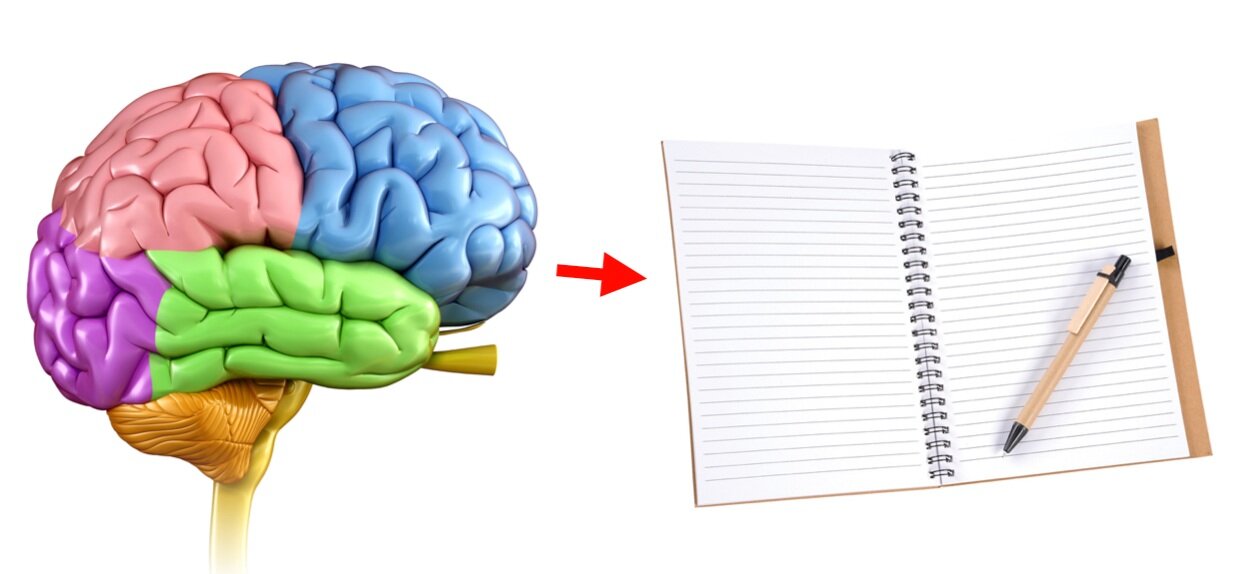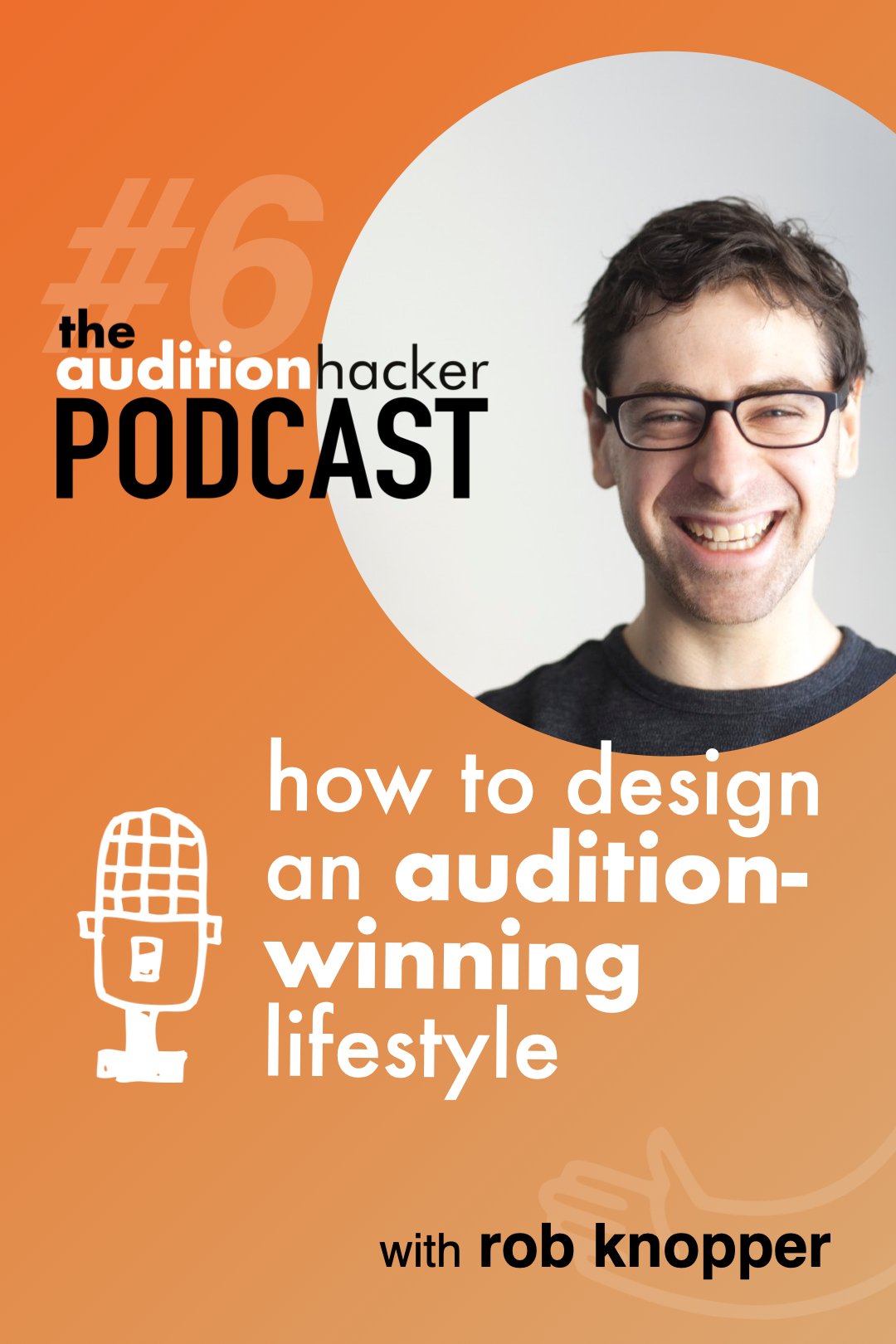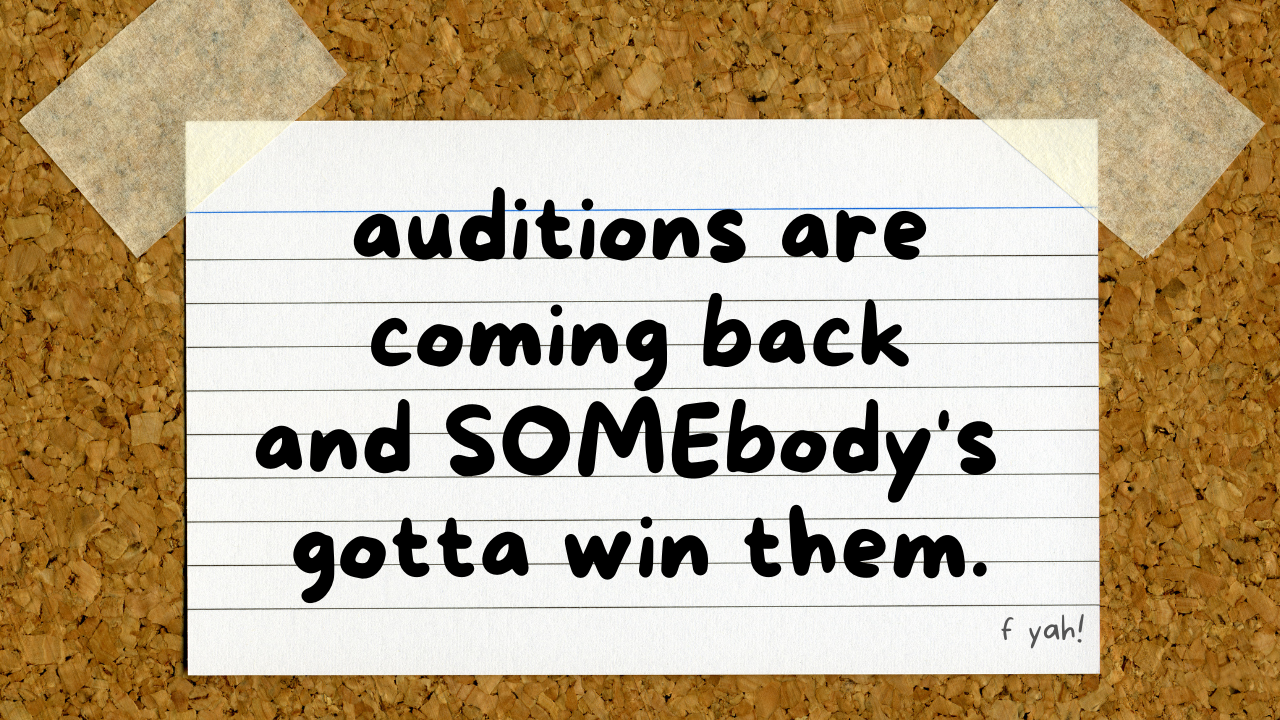over the past week, i’ve been sharing some advanced audition strategies with you.
blog 1: the productive, healthy way to analyze audition comments
blog 2: a strategy to finally advance using science
hopefully i’ve gotten you to start thinking about how you can make tweaks in your audition preparation process to improve yourself and get better results.
there are a WHOLE BUNCH of auditions coming up in the next few months that you can apply these strategies to, including lots of professional orchestra positions, summer festivals, and college auditions.
normally i teach about the linear steps of audition preparation from the day you get your list until audition day. but today i want to talk about a couple “X factor” strategies that can make everything you do in the practice room more effective.
strategy one: practice with a buddy
when my friend kyle was preparing for the boston symphony orchestra audition, he was working on his 3rd musical life goal:
kyle brightwell: the man himself
his dream was to get into the boston symphony. so when the audition (for 2 positions) was announced, he decided that he was going all in. he invited a friend of his from tanglewood, matt, down to new york city to practice. for a few weeks before the audition, they even lived together. they practiced all day, talked about their audition preparation in the breaks, and hung out every night. they were living, eating, and breathing auditions. together.
while i was preparing for my met audition, i was a member of the new world symphony, which is made up of up-and-coming musicians around the same age who are all trying to audition for orchestras and get a real job. i was similarly with my percussionist friends every day. we practiced in adjacent rooms, ate lunch together, and played mock auditions with each other constantly.
there’s something about being a part of an audition team that kicks you into high gear without you even realizing it.
throughout my auditioning life i’ve always joined a small group of audition-obsessed musicians. during undergrad it was with my juilliard percussion classmates. when i was living in my dad’s basement in michigan, preparing for the new world symphony audition, i was hanging out with the university of michigan percussionists. and most of the percussionists in all three of those groups won auditions and got jobs in the years after our intensive audition period.
there’s a feeling of accountability when you’re practicing with people. if you make a mistake while playing for someone, you have an extra incentive to fix that issue before you play for them again.
you can use them as a resource. chances are that if you can’t figure out how to fix something, someone else has already figured it out and you can get great ideas from them.
and there’s a little feeling of healthy competition that seeps in when you’re working with a friend on audition prep. you know there’s at least a .001% chance that eventually it might come down to the two of you in your next audition, and you want to make sure that you have a leg up on them. and if you’re both sprinting forward, trying to get better faster than the other, then the end result is incredible improvement from both players.
so what happened when kyle and matt practiced for those two positions in the boston symphony? they both won. they filled both positions and now they’ll be playing together for the rest of their lives.
so my question for you is this: the next time an audition is announced that you care about, how are you going to find your practice buddy?
strategy two: write everything down
i want to share something with you from a book i read called getting things done. this book changed my life.
the principle is this: your brain is for having ideas, not holding them.
when i go to the store, i have two choices: i can try to keep my grocery list in my head or i can write it down. if i keep my grocery list in my head, i have to keep reciting the list back to myself the entire way there.
“eggs, yogurt, stella, oranges, blueberries. eggs, yogurt, stella, oranges, blueberries.”
i have to maintain extreme focus on reciting that list to myself or else i will forget one of them. i know this about myself. but if i write down this list, i can allow my brain to forget about it and use the time i spend walking to the grocery store to come up with new ideas.
“OH! i guess i’ve been playing the brahms triangle excerpt with the metronome a lot… i should try practicing it with the recording.”
you get more done when you write things down.
say you worked on 5 problems in your midsummer night’s dream excerpt in today’s practice session. you actually solved those 5 problems. but you didn’t write anything down. the solutions to those problems were extremely clear and effective… right as you were solving each one of them. but as you started working on problem #2, the great solution you found to problem #1 gets a little hazy. by problem #4, problems #1 and #2 are both in the back of your mind. and when you’re at the end of your session and you fixed all 5 things… are you left with an excerpt that has those problems all solved? or are you mostly only focused on the most recently solved things? and when you pick up the excerpt again tomorrow, which of those fixes remain in your playing?
in your audition preparation process, you can focus on writing 3 different categories of things down:
playing notes: when you find a problem, write it down. when you find a solution, write it down. that way you can keep your list of what you need to work on and what you’ve already worked on organized.
schedule notes: the difference between creating a schedule of work for yourself and not doing that is immense. if you’re trying to keep your plan in your brain, you’ll constantly have to remind yourself about what you do on what day. just holding that basic schedule in your brain takes up most of your bandwidth. if you write it all down and you can look it over, you can focus on the task at hand and trust that your schedule is making sure everything will get done when it needs to get done.
process notes: when you get to the more advanced stages of audition preparation, your process for how you actually practice excerpts starts to get really complex. for instance, how many steps are involved in your note-learning process? how many ways do you research your excerpt before you feel like you “know” the piece? if you’re just trying to remember what you did last time, you’re not giving yourself an opportunity to improve on the way you prepared your audition last time. if you write it down, and it’s all right there in front of you, you can instruct your mind to start thinking about improvements beyond what you did last time so that your audition preparation is better than it’s ever been.
your brain is not an effective place to hold thoughts - you should exclusively use it for creating new ideas and start writing down your thoughts for future reference. every time you think of something you have to do, and you don’t write it down, you're wasting time. because you are deciding right then and there that you’re going to spend time in the future remembering it. or worse, forgetting it.
a way to incorporate these two strategies (with me)
i’ve been thinking a lot of about how to help musicians incorporate these two strategies. and over the past few months i’ve been doing an experiment by running my first audition coaching program, called rob’s inner circle.
i brought together two small groups of only 5 people each to simulate the same small groups i was a part of during my auditioning years. it’s been one of the most fulfilling and productive educational projects i’ve been a part of.
if you’re auditioning alone, and you want to join a team of musicians, this is a perfect group for you.
if you need the accountability of an audition buddy, the personal attention of a private coach, and a schedule of consistent mock auditions and strategy sessions, this could be the perfect addition to your life.
we’ll create a master folder of audition preparation documents and carefully go through every detail of your practicing process until it’s as optimal as humanly possible.
here’s what you’ll accomplish in rob’s inner circle:
rob’s inner circle is an intensive audition coaching program that begins on january 1st, 2020 and runs for four months. during that time, you’ll work with me and four other musicians to get in the best audition shape of your life. you’ll master the practice techniques, mindset, and organizational systems that professionals use to win auditions.
if you’re interested in learning more, take a look at the enrollment page and schedule a private interview with me. the interviews are all happening next week, and the deadline to apply is this sunday, november 17th.
check out all the details of rob’s inner circle here.
if you have any questions, let me know and i’ll get back to you as soon as i can.


















in 2019, a cellist named maria reached out to me about her audition struggles. on paper, she was the “worst audition candidate ever” (her words). she had 2 small children, a full-time teaching job, and hadn’t taken an audition in 4 years.